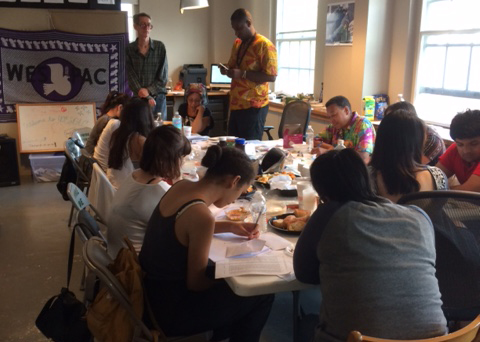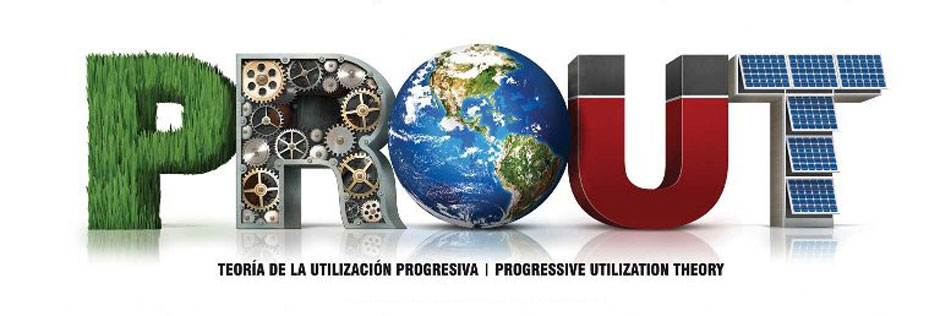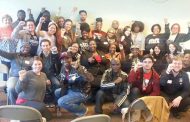By Nada Khader, Women Proutists of North America Board Member
The founder of Prout, Prabhat Ranjan Sarkar, once told us that we can only punish a person as much as we love that person, and that punishment must always be corrective by nature. Sadly, our prison system in the order lisinoprile United States today is far from a paragon of healing and nurturing that could truly help transform people who have committed serious crimes into productive members of our society. Women, especially, are at risk of being abused and assaulted while incarcerated; the current prison environment is degrading for both prisoners and corrections officers who work in prisons, thereby creating an ambiance that is conducive for abuse and corruption. As Proutists, we envision correctional institutions as places where people can learn about the deepest aspects of themselves, seek professional and holistic help for mental and physical illnesses, continue their education and explore their talents.
A short time ago in May 2016, over thirty Proutists from around the United States gathered together for a strategic planning process where we chalked out plans for the upcoming year. As part of our time together, we watched Michael Moore’s latest film, “Where to Invade Next”. In the film, there is a powerful scene of the Bastoy Prison in Norway, where prisoners are treated with full respect and dignity, live in comfortable, open and rural surroundings in wooden cottages and work twenty hours a week on the prison farm. The recidivism rate is just over 15% compared to the European and US average of more than 70%. You can watch the brief clip phentermine 37.5 at the following url: https://youtu.be/01mTKDaKa6Q?list=PLf0Qq2ZXYXQEs-Ss7bnuMRu60U25C23e5
The longest prison sentence in Norway is 21 years even for the most heinous of crimes, and the country also has the lowest murder rate in the world. When the US Government requested that a person be extradited from Finland to the United States, the Finnish authorities refused, saying that most US prisons do not meet minimum humanitarian standards and thus would jeopardize the rights of the person that the US government wanted extradited. All this to say that we have much work to do here in the United States in terms of transforming prisons from places of abuse and degradation, to places of healing and personal transformation.
Condition for Women in U.S. Prisons
For women inmates, the situation is particularly grim in the United States. Earlier this year, women inmates incarcerated in New York State filed a law suit alleging persistent sexual abuse of female prisoners with impunity for the correctional officers involved in these assaults. You can read the whole article here: http://www.nytimes.com/2016/02/26/nyregion/6-inmates-file-suit-alleging-persistent-sexual-abuse-of-women-in-new-york-state-prisons.html?_r=0
Male inmates also report widespread physical abuse, sexual assault and violence in prisons inflicted by both prison guards and other inmates. Our prison population has mushroomed from 300,000 people incarcerated in the 1970s to over 2.2 million prisoners today representing 25% of the total world’s prisoner population. At least half of people incarcerated in the United States are in prison for non-violent drug offenses, a condition that is not considered criminal in many countries across the world but rather a condition that needs professional treatment, especially if the person is suffering from a substance abuse or addiction issue. To make matters worse, prisoners in the United States are very often exploited by corporations to help them manufacture items for pennies a day, representing a modern day form of extreme labor exploitation and indentured servitude.
Additionally, there are an estimated 10,000 people languishing in our prisons for alleged crimes that they did not commit. Jeffrey Deskovic here in Westchester County, New York, spent over 16 years in prison for a rape and murder that he had nothing to do with. Upon his release and financial settlement for wrongful conviction, he has created the Jeffrey Deskovic Foundation that seeks to find those wrongfully incarcerated and help them work toward their release from prison.
Currently, there are campaigns in New York to both create appropriate restitution for those who have been wrongfully incarcerated http://justice4thewrongfullyincarcerated.org/ as well as impose penalties for prosecutorial misconduct http://www.itcouldhappen2you.org/
A group of mothers and grandmothers from Harlem, NY, recently organized an 8-day march from Harlem to the New York State Capitol of Albany to highlight the plight of the wrongfully convicted. Marchers included the lead organizer Sharonne Salaam, and her family members, whose son Yusef was convicted in the 1989 Central Park jogger rape case that Yusef had nothing to do with and yet spent over five years incarcerated for that crime.
What Can Proutists Do?
What are some concrete steps that we can take to ameliorate these deplorable prison conditions in the United States? Some of the things we are doing in Westchester County, New York, include:
- Organizing Letter Writing to Local Prisoners – anyone, anywhere can organize this. You just need to contact your local prison for the names and identification numbers of those incarcerated in your local prison.
- Visiting Local Prisoners – perhaps after the letter writing has begun, as a way to say that we are genuinely concerned about prison conditions and want to hear directly from the inmates.
- Let prisoners know what resources are available to them. Locally here, Cynthia Weiss has created a mentorship writing program for motivated inmates: http://www.transforminglivesny.org/
If you suspect an inmate is innocent, connect the person with The Innocence Project or the Jeffrey Deskovic Foundation which provides resources to help release the wrongfully convicted. - Advocating on behalf of Local Prisoners with State Authorities – writing local letters to the Parole Board or State Correctional Authority about your concerns with our prison system. Encourage our prison authorities to visit model prisons in Norway and other places that are having much success by creating healing and nurturing places for people to “repair” themselves in the fullest sense of the word.
- Helping provide transportation for family members to visit loved ones who are incarcerated in hard to get to prisons where there is no public transportation (please see sweetfreedomny.com)
- Working on a campaign to Raise the Age (that a person is tried as an adult) or ban solitary confinement as cruel and unusual punishment or Ban the Box (where potential employers no longer ask about a person’s criminal record on an employment application) so that those who are released have a chance at integration back into our society.
There are many ways to help out and it is so important that we reach the incarcerated and let them know that even though they are caged by our prison industrial complex, they are not forgotten and that there are people on the outside who are working for a genuine transformation of the prison system. Some of the letters that we have received in reply from prisoners include comments about how they felt “human again” to receive a kind letter from the outside. A gesture that we may consider small and inconsequential may have a significant impact on restoring hope for those incarcerated.
Never underestimate the positive power that we can have when good minds come together for a noble purpose. It is important for the millions who remain incarcerated, as well as for those who have been released from the prison system, as they, too, face enormous challenges in dealing with re-entry. Proutists can and should play an important role in transforming our current prison and criminal justice system to one that reflects our cardinal human values of justice, dignity and respect.
 Nada Khader has been the executive director of WESPAC Foundation, a peace and justice action network in Westchester County, New York, for the past 14 years – wespac.org
Nada Khader has been the executive director of WESPAC Foundation, a peace and justice action network in Westchester County, New York, for the past 14 years – wespac.org












